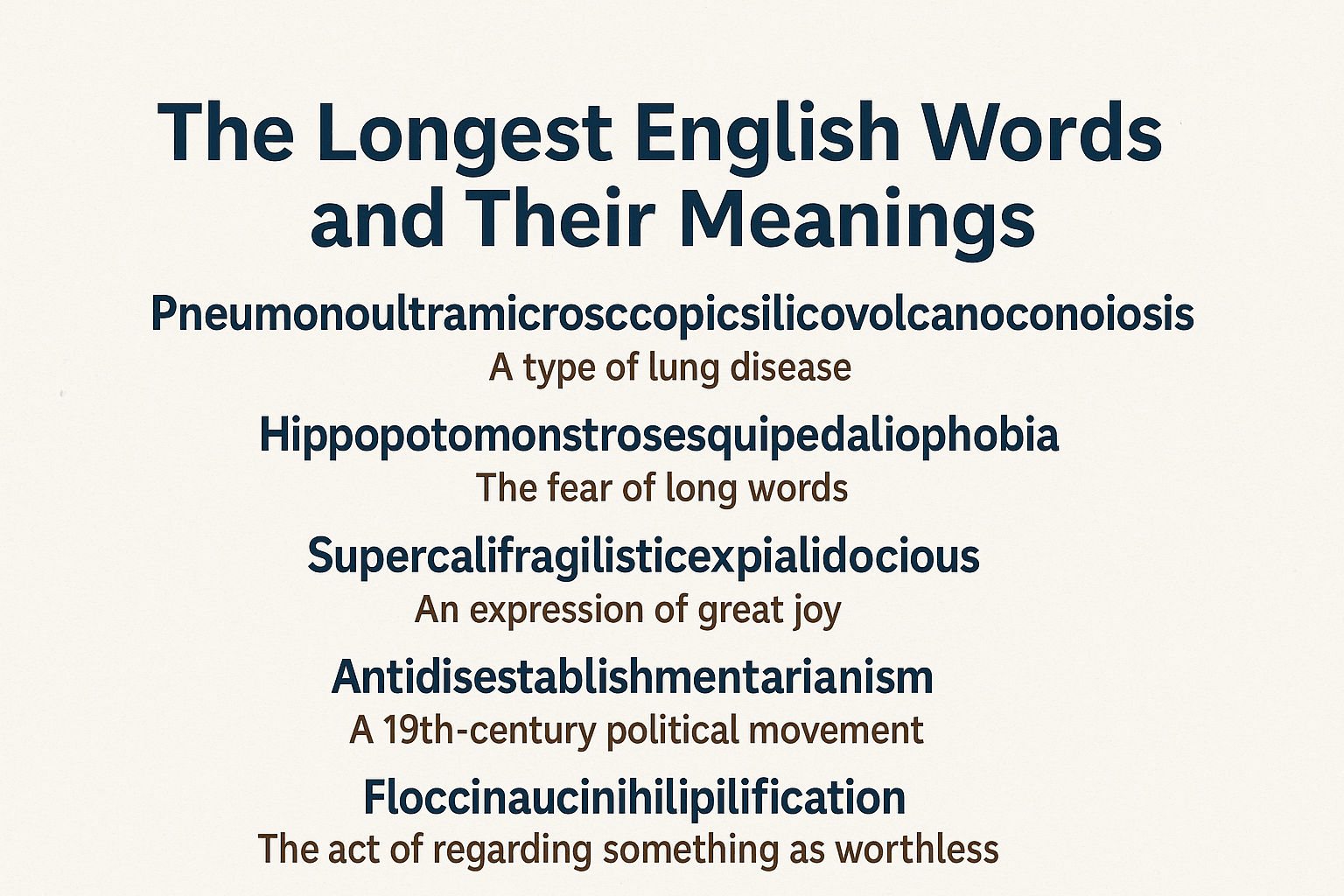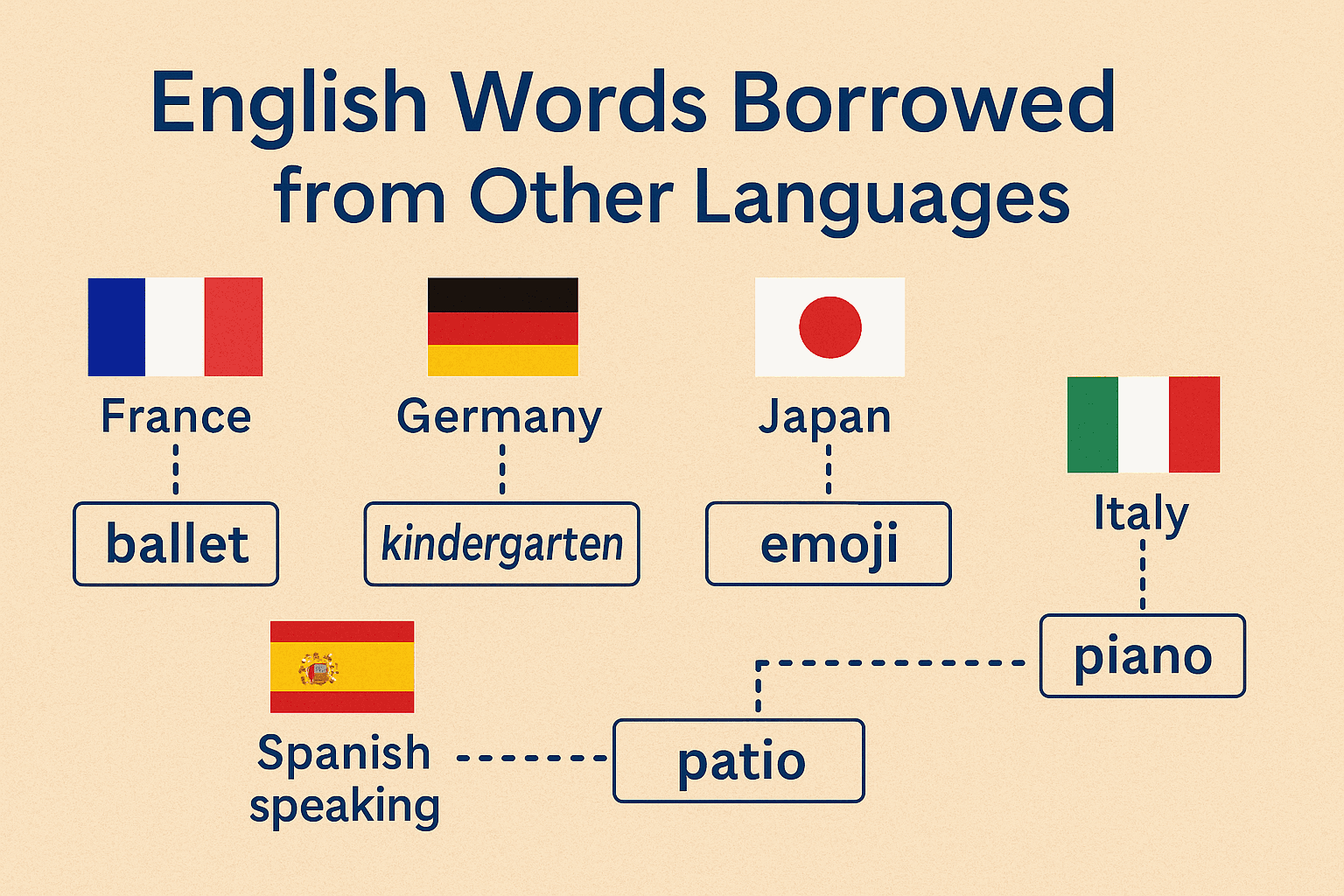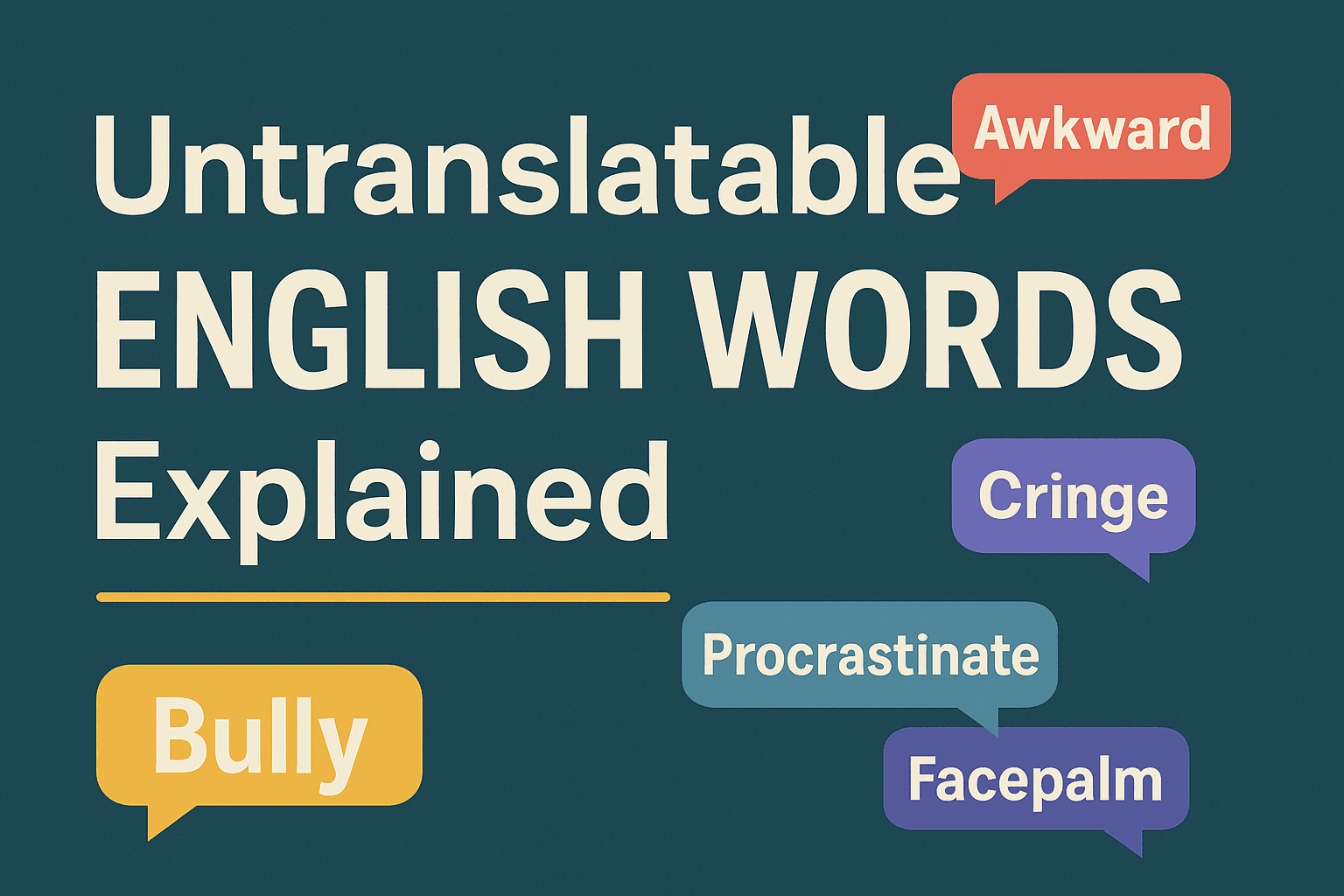English, like every language, is full of surprises—and when it comes to unusually long words, it does not disappoint. Whether you’re a lover of language, a spelling bee enthusiast, or just someone who likes to challenge your vocabulary, long words offer a fascinating peek into the complexity of the English language.
In this article, we’ll explore some of the longest English words, explain what they mean, and give you a few tips on how (and when) to use them. Some of these words are rare, others are technical, and a few are even humorous—but all are real, and all have their place in English.
Why Are Some English Words So Long?
Long words often come from technical or scientific fields, where terms are built from Greek and Latin roots to describe complex concepts with precision. In other cases, they’re the result of word formation processes like compounding, affixation, or coining for fun.
Most long words aren’t part of daily conversation—but they do exist, and they’re recognized by dictionaries, linguists, and even Guinness World Records.
1. Pneumonoultramicroscopicsilicovolcanoconiosis
Length: 45 letters
Meaning: A type of lung disease caused by inhaling very fine silica particles, often found in mines.
Origin: Coined in 1935 as a deliberately long word. It’s technically a form of silicosis, and although some consider it a “made-up” word, it appears in major dictionaries.
Fun Fact: Often cited as the longest word in English.
2. Hippopotomonstrosesquipedaliophobia
Length: 36 letters
Meaning: Ironically, the fear of long words.
Origin: A humorous construction combining hippopotamus, monstrous, and sesquipedalian (which itself means “a long word”).
Use in context: Not commonly used in medical settings—it’s more of a playful word than a clinical diagnosis.
3. Supercalifragilisticexpialidocious
Length: 34 letters
Meaning: A nonsense word meaning fantastic or extraordinarily wonderful.
Origin: Made famous by the Disney movie Mary Poppins. Though invented, it’s now in several dictionaries and used in pop culture.
4. Antidisestablishmentarianism
Length: 28 letters
Meaning: Originally, a political position opposing the separation of church and state in 19th-century Britain.
Origin: From Latin and Greek roots. Though not commonly used today, it’s often cited as a “go-to” long word in classroom settings.
5. Floccinaucinihilipilification
Length: 29 letters
Meaning: The act of describing something as unimportant, worthless, or having little value.
Origin: From Latin roots and coined in 18th-century British schools as a humorous example of long words.
🧠 VIDEO: Longest Words in English (with Pronunciation!)
🎥 Watch: The Longest Words in the English Language
This short and fun video breaks down several of the longest words in English, with audio to help you pronounce them!
Are These Words Actually Useful?
That depends. Most of these words are:
- Rare or technical
- Used more for entertainment or trivia
- Appearing in academic or legal texts
Still, they’re fascinating and often serve a purpose in scientific or scholarly settings.
For example:
- Pneumonoultramicroscopicsilicovolcanoconiosis is sometimes used in occupational health discussions.
- Floccinaucinihilipilification might appear in satirical or literary contexts.
Other Surprisingly Long Words (Still in Use)
| Word | Letters | Meaning |
|---|---|---|
| Incomprehensibilities | 21 | Things that are difficult to understand |
| Honorificabilitudinitatibus | 27 | The state of being able to achieve honors |
| Psychoneuroendocrinological | 27 | Related to psychology and hormone functions |
| Dichlorodifluoromethane | 23 | A chemical compound (used in refrigerants) |
Tips for Learning Long Words
- Break them down – Many long words are compound words made of smaller roots.
- Learn root meanings – Latin and Greek roots help unlock word meanings.
- Practice pronunciation – Use tools like Forvo or YouTube.
- Don’t force them – Only use long words when they add value to your sentence.
Fun Fact: The Longest Non-Technical Word
Incomprehensibilities is considered the longest non-coined word used in common language.
And if you’re wondering what the longest word ever is: there’s a chemical name for a protein (nicknamed “Titin”) that has over 189,000 letters. But don’t worry—it’s not recognized in dictionaries and would take three hours to pronounce.
Final Thoughts
Long English words are not just linguistic oddities—they reflect how flexible and creative the English language can be. While you may never drop antidisestablishmentarianism in casual conversation, knowing words like these can sharpen your vocabulary and make you sound (or at least feel) a bit more brilliant.
So go ahead—try saying pneumonoultramicroscopicsilicovolcanoconiosis three times fast. It’s not just a tongue twister—it’s a badge of honor for word lovers everywhere.




